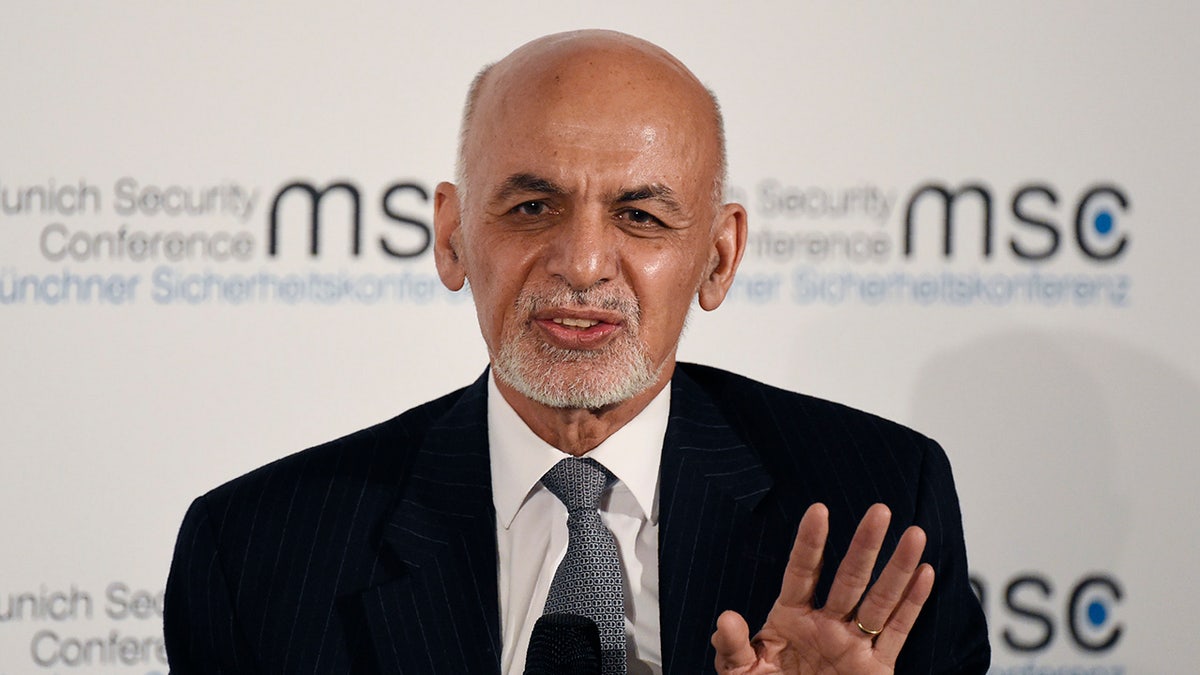Fox News Flash top headlines for Feb. 18
Fox News Flash top headlines are here. Check out what's clicking on Foxnews.com.
Afghanistan President Ashraf Ghani will remain in power for another five years.
The country's election commission on Tuesday announced the final results for the September 2019 presidential election and declared Ghani the winner.
The head of the Independent Election Commission (IEC), Hawa Alam Nuristani, said Ghani received 50.64 percent of the votes--or 923,592 votes--in the election that took place last Sept. 28. Challenger and chief executive Abdullah Abdullah received 39.53 percent of the vote.
AFGHAN PRESIDENT: 3 TALIBAN TO BE RELEASED FOR HELD US, AUSTRALIAN
Nuristani previously said 1.8 million Afghan citizens voted in the election out of some 9.6 million who were eligible.
The results come days after U.S. Defense Secretary Mark Esper announced a truce agreement between the United States and the Taliban that could lead to the withdrawal of American troops from the country. The election results were delayed by five months as opposition politicians accused Ghani’s government of misconduct and claimed there were technical problems with counting ballots.

Afghan President Ashraf Ghani. speaks on the second day of the Munich Security Conference in Munich, Germany, Saturday, Feb. 15, 2020. (AP Photo/Jens Meyer)
In November, Ghani announced his government would release three Taliban figures in an effort to have the insurgents free an American and an Australian abducted in 2016 and held captive for three years. He said the exchange was intended to “facilitate direct peace negotiations” between the Afghan government and the Taliban.
Three members of the Taliban-linked Haqqani network -- Anas Haqqani, Haji Mali Khan, and Hafiz Rashid -- would be released "conditionally in exchange" for an American identified as Kevin King and an Australian man identified as Timothy Weekes, Ghani said in a press conference.
The Taliban released both men – who had been abducted at gunpoint outside the American University in Kabul where they worked as teachers – to U.S. forces in an exchange brokered by American peace envoy Zalmay Khalilzad. Khalilzad had negotiated a tentative agreement earlier with the Taliban that would have included terms of an American troop withdrawal before those talks were ended by President Trump in September.
Trump had canceled peace talks with Taliban leaders at a presidential compound in Camp David, in Maryland, when the insurgents claimed responsibility for a suicide bombing in Kabul that killed one American soldier and 11 other people.
“If they cannot agree to a ceasefire during these very important peace talks, and would even kill 12 innocent people, then they probably don’t have the power to negotiate a meaningful agreement anyway,” Trump tweeted in September.
The Taliban has never been hit harder than it is being hit right now," Trump also wrote. "The Taliban knows they made a big mistake, and they have no idea how to recover."
The message came hours after Trump announced that the son of Usama bin Laden had been killed in a recent counterterrorism operation in the Afghanistan-Pakistan border region. Hamza bin Laden had been a high-ranking member of Al Qaeda, the terror group his father formerly led.
The country's election commission had tried to launch a ballot recount in November but Abdullah halted the attempt, saying he wouldn't let his observers participate.
Abdullah in December agreed to allow a ballot recount in provinces where his supporters had stopped the process for almost a month. Thousands of Abdullah’s supporters had rallied in November against what they said were fake ballots. The controversial recount had seemed set to favor Ghani.
Ghani and Abdullah head a fragile national unity government that was put together under U.S. pressure after both leaders claimed victory in Afghanistan’s last elections in 2014.
Ghani is from the central Logar Province and was born on May 19, 1949. He holds a doctorate in Anthropology from Columbia University and first went to the U.S. as a high school exchange student. Except for a brief teaching stint at Kabul University in the early 1970s, Ghani lived in the United States, where he was an academic until joining the World Bank as a senior adviser in 1991, according to the Associated Press.
CLICK HERE TO GET THE FOX NEWS APP
He returned to Afghanistan after 24 years when the Taliban were ousted by the U.S.-led coalition. Ghani was head of Kabul University until he joined President Hamid Karzai’s government as finance minister. In 2010 he led the lengthy process to transfer security of the country from U.S.-led coalition forces to the Afghanistan National Security Forces, which took effect in 2014.
Fox News' Morgan Phillips, Jack Durschlag and the Associated Press contributed to this report.











































